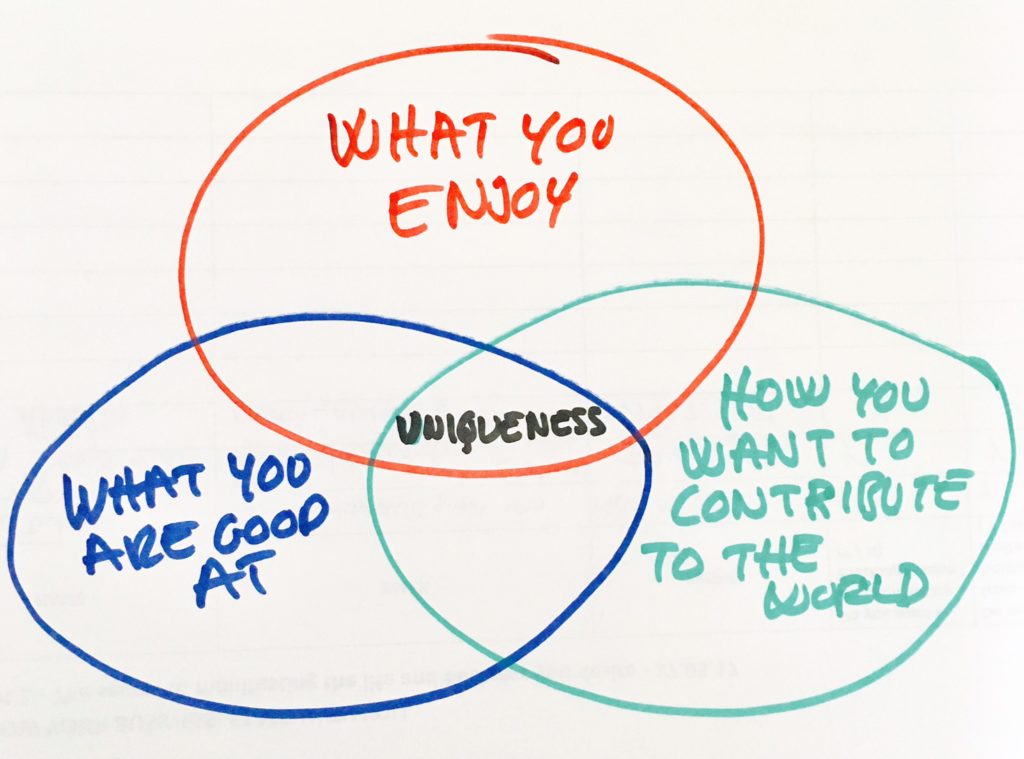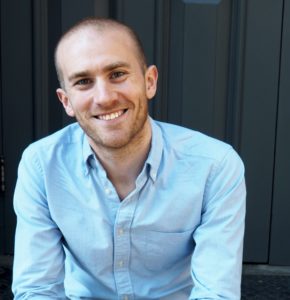So many of us fall into our careers, into our work. Not that it’s an accident, often it is the result of months or years of hard work, to get us to a position or into a career that we have decided we want. And then, for the unlucky ones, including me, we wake up one day and realise something isn’t right. Somehow we aren’t as fulfilled as we thought we’d be. The road that is now open in front of us doesn’t look fun, or fulfilling, and the destination at the end of it isn’t as sunny and exciting as we thought it was. In fact, we’re not sure we want to go there at all. And we’re not quite sure how we got here in the first place.
At coachingpartner, we believe that the path to a happy and healthy world – for you and for others – starts with understanding what makes you unique. And perhaps the place where that is most starkly true is in the work that each of us do every day.
—
I tried several careers in my 20s. In my early 20s, I applied for acting training. I was good. Very good. Good enough to get into several prestigious UK schools, and be on final shortlists for the very best training in the country, some of the best in the world. There are many reasons and stories I can tell about why I didn’t take up those places; it was a difficult and painful decision, telling people I had changed my mind, and leaving behind the last of my childhood dreams. But there is one in particular that stands out. I watched The West Wing. And, ironically, I realised through watching that spectacular piece of art that I wanted my impact to be more tangible than art, I wanted to do more than create art myself. My dreams had shifted: now I wanted to be a real-life Josh Lyman, not the man playing him. I knew this was ironic even then: shows like The West Wing, and performances in theatre and film across the world change people’s lives every day. But I had doubts: was I good enough to be playing Hamlet for the RSC or Will when they finally made a decent movie of His Dark Materials? Would I actually be changing people’s lives? Or would I be boring teenagers in school halls and making elderly people titter at mediocre jokes, just to make ends meet? My suspicion was I was good, but I wasn’t a Ralph Fiennes or a Ben Wishaw, and there were other people – including Ralph and Ben – who were. Other people could do this better than me. And would I enjoy what I was left with?
So I pivoted. Where was I more special? Where was my equivalent of the Josh Lyman role? I decided that the arts was still what I loved, it was what I had spent so much of my life diving into, from theatre to music to literature and beyond. And I could make things happen. And I could do numbers. And I decided that people like me – with a love of the arts, highly numerate, great with people, all that package together – were a rare breed, and that placed me really well to run a theatre or an arts centre. And so that’s what I did for the next five years. Until I gradually realised that I was tired, and unsure. I was worn down. There were so many battles to get the things done that I wanted to, and I wasn’t winning them as easily as I felt I should. And I wasn’t enjoying fighting them. More than this, I knew there were people who loved those battles, and who thrived on many of the things that I was struggling through, full of frustration. And as I looked down the road, suddenly I didn’t want to be running the Southbank Centre or Sheffield Theatres. That wasn’t right, either.
The next few years after that, which in the end led me to train as a coach, were a search for something more. I read a lot about how to find the right career through that period, and I’m going to share with you now what I think was the most useful model I found. It was a Venn diagram, which I think I took from a webinar with Brett Thomas, although there are other similar ones out there. It said that your ‘calling’ is the overlapping point of three circles: What You Are Good At, What You Enjoy, and How You Want to Contribute to the World.
These days I would take this further. For me the questions are:
What is your unique mix of talents?
What do you love doing, so much that you could do it for hours without it feeling like work?
What is the way for you to have the most impact you can, in the way you want to, on the world we live in?
I could see the truth of the Venn diagram in the decisions I had made: was performing in touring theatre shows using all my talents? Would I be having the impact I could elsewhere? And if the answer to those first two questions was ‘no’, would I enjoy that work? Later, I realised something similar about my work running arts organisations: although I was using a much better mix of my unique talents, in the end I was doing work – day to day – which I didn’t enjoy. I was, and am to this day, so proud of so much of my contribution to making some truly wonderful and amazing things happen, in those roles and subsequently, but I wanted more than that, I wanted something which day to day, minute to minute, I loved doing. And I believed that was possible.
And so my search began, and over the next few years the answers to those questions brought me to coaching. Where my impact could be direct to the people I spoke to, where I would enjoy every minute of sitting with clients, helping them work through their biggest opportunities and challenges, and where my skills with people – which, I realised, in the end were what were exceptional about me – could be used to their fullest. All my fears about changing career (again) revolved around it not working or it taking a decade to happen. But something magical happened: everything shifted very fast. I’ve written about that journey in detail elsewhere, but in short it took me around two years from starting training to being full time, and in my first year of being full time I expect to make more than I ever did in a salaried job. And this is because I understood my unique mix of talents, and found something which I love, and which contributes to the world in a way which makes me excited to get up in the morning. And finding that mix – that area in the middle of the Venn diagram – is powerful and magical for what we can achieve.
—
One other powerful thing stood out to me as I wrote this piece: how much being highly numerate played a part as I shifted into working as a leader in the arts. As I shifted away from acting, I was telling myself that mathematics and numeracy were core to who I was, and talents that set me apart in the arts world. And I was good at it. I cruised through GCSE and A Level Maths, and studied a BSc in Mathematics at UCL, one of the top courses in the UK. And everyone is so impressed with maths. If you tell people you studied maths at university they say, almost without fail, “wow, maths!”. People are impressed by it, and I was good.
But that isn’t enough. And too much of it came from outside of the core of who I am. I see this with others, too. Society, our friends, our family, our schools and we ourselves place so many pressures and expectations on us. Most of it is done in an incredibly well-meaning way. But at those times when we feel unfulfilled it is almost certain that we are committed to something based on a story which comes from outside of who we really are. Because that is what fulfilment is – it is each of us living and creating from our unique self. In our work – our careers – the first step, is to understand that unique self. And then who knows where it will take us, and how fast.
—
That is my call to action to you: begin to understand yourself more. If you are feeling the drag right now – if you are feeling unfulfilled, unhappy, run down in your work – then the reason to do this work is obvious. But even if you are not, if things are brilliant now, then it’s a wonderful opportunity to learn more about yourself, to keep your life in the place you want it to be, or take it even further than you thought possible. Understanding yourself – and what makes you the inspiring, creative, unique person that you are – will take you in all sorts of unexpected directions, and will carry the people in your life there, too.
Here’s my suggestion: carve out a small amount of time, even 15 minutes a week, and devote it to reading, watching, listening or reflecting. You may already have a list of things you want to dive into, but if not, here is some inspiration from the coachingpartner team. Experiment with what is the most interesting to you: for some it will be a TED Talk each week, for others a writing practice, for others, perhaps it is reflecting, creating lists of all the answers to the questions above, creating your own Venn diagram. You may find you enjoy this time so much that you want more, some time every day – perhaps reading over breakfast each morning, or a podcast on the train instead of the usual trawling through Twitter. And if you really love it, find the time to dive further: a workshop, a seminar, a training course. Of course, I think that coaching is a wonderful way to discover more about yourself in an incredibly practical, real-world way.
I think you’ll be surprised by the power of this self-knowledge, as it changes the way you see the world in unexpected ways. And if your aim is to find work that fulfils you, then the starting point is to understand who you truly are.



